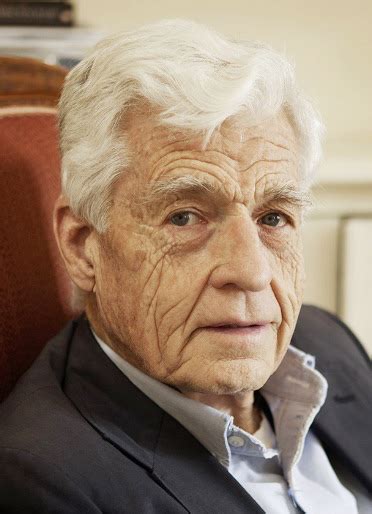A Quote by Robert O. Paxton
There were the events of 1968 when young people began to ask their parents, what did you do in the war? And since the middle- or late-'70s, the French have been absolutely obsessed with the Vichy regime. They have an institute of contemporary history that turns out first-rate scholarly work. Their textbooks are accurate. Whether the students actually read them is another matter.
Related Quotes
When I was a kid, a lot of my parents' friends were in the music business. In the late '60s and early '70s - all the way through the '70s, actually - a lot of the bands that were around had kids at a very young age. So they were all working on that concept way early on. And I figured if they can do it, I could do it, too.
This revolution began with young people in Syria demonstrating because they wanted a future. They wanted opportunity, education, and so forth. They went out and they did it. Thugs came out and beat them up. The parents got angry that the thugs beat the kids up, and they went out and demonstrated, and they were met with bullets. They were killed. That's how this began.
I was the little French boy who grew up hearing people talk of De Gaulle and the Resistance. France against the Nazis! Then when that boy grew up, he began to uncover things. We began to legitimately ask the question, 'What exactly did our parents do during the Occupation?' We discovered it was not the story they were telling us.
I started work on my first French history book in 1969; on 'Socialism in Provence' in 1974; and on the essays in Marxism and the French Left in 1978. Conversely, my first non-academic publication, a review in the 'TLS', did not come until the late 1980s, and it was not until 1993 that I published my first piece in the 'New York Review.'
Well, he worked for a fairly harmless agency. He worked for the agency that looked after French prisoners of war. Though he was capable of some horrendous blunders when he was president. He once said that the Vichy legislation against Jews affected only foreign Jews, which was, of course, absolutely wrong. So he obviously wasn't too well-informed about what is going on in the Vichy government.
And all the things I thought were mistakes and I did cartoons on them. And then I think I was the first cartoonist in the country to attack the war in Viet Nam and that helped influence a whole generation of young cartoonists who later on took up the battle. And that was exciting to know that I had helped influence work of young people who were moving this forum into a better and more exciting area, out of the more by the state that political cartooning had been in.
As you know, you go to war with the army you have, not the army you might want or wish to have at a later time. Since the Iraq conflict began, the Army has been pressing ahead to produce the armor necessary at a rate that they believe - it's a greatly expanded rate from what existed previously, but a rate that they believe is the rate that is all that can be accomplished at this moment.
When I was arrested opposing the war in Vietnam in 1965, as I said about 20 or 30% of people were opposed to the war. By 1968, more than half of Americans were opposed to the war. If you pull in Europeans, Canadians, people from around the Third World, the war was vastly unpopular. But even half of Americans by 1968 opposed the war.
The 1980's was the first time in the history of imperialism that people from the imperial society went in substantial numbers to stay with the victims in the hope that their presence would offer some protection and some help. These were not the usual students from elite universities. These were people straight out of middle America.
We work with tweens. Middle school grades. That's a key time in a young person's literary history. That's the time when they're still open to reading, but there are other things that are starting to interest them that can pull them out of their reading habits. It's a critical time to make the reading habits stick, but at the same time it's not pulling teeth to try to get them to read in the first place.
I feel almost as if I had been born in a vacuum of innocence, and then had to come to terms with the fact that actually, I was born into the middle of history - the rather grimy normality of the 70s, which did, indeed, retain some traces of human innocence, but were also girded about by the demons of experience.







































